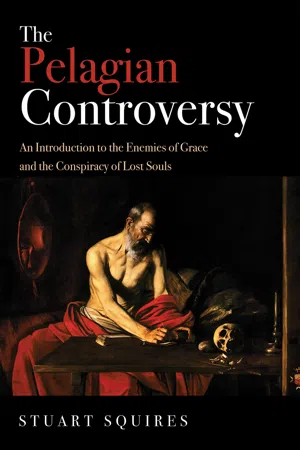![]()
Part I: History
![]()
Chapter 1
The Political, Ascetic, and Theological Contexts
The Political Context: The Christianization of the Roman Empire in the Fourth Century
Beginning with the Emperor Nero (54–68), who blamed Christians for a fire that tore through the city of Rome in 64, Roman authorities sporadically persecuted the followers of Jesus for almost 250 years. One of the most severe of these persecutions, which became known as the “Great Persecution,” began during the reign of Diocletian (284–305), who also is known for reorganizing the political leadership of the Empire into the Tetrarchy (Diocletian was the Augustus of the East, Galerius was the Caesar of the East, Maximian was the Augustus of the West, and Constantius, the father of Constantine, was the Caesar of the West) in 293. The Great Persecution began after Diocletian and Galerius partook in an animal sacrifice at Antioch in 299 that failed. The priests had slaughtered an animal, and the soothsayer (haruspex) inspected the animal’s entrails for divine messages, but found nothing. The priests slaughtered more animals, but these, too, produced nothing. They concluded that the Christians in Diocletian’s entourage had made the sign of the cross during the sacrifice, causing it to be inefficacious. Or, as the Christian apologist Lactantius (c. 240–c. 320), who earlier had been hired by Diocletian to be the chair of Latin rhetoric in Nicomedia, would describe it, “the demons were chased away, and the holy rites interrupted.” When a final sacrifice was made after the Christian interlopers were expelled, the gods were appeased. Diocletian also sent letters to the military that they, too, must sacrifice, and if any soldiers refused to do so, they must leave the army. In the fall of 302, Diocletian was again in Antioch, and again made a sacrifice to the gods prior to conducting official business. A certain deacon named Romanus was scandalized by seeing so many people in the pagan temples there. He interrupted the sacrifice at court in protest, and denounced them all as worshipping demons. Diocletian had him arrested, and Romanus was sentenced to be burned to death. But, Diocletian decided to have his tongue cut out of his mouth instead. Romanus was executed the following year after the persecution of Christians officially began.
Diocletian consulted Galerius about how to handle the Christian population. Galerius strongly pressured Diocletian to begin a formal persecution. Although Diocletian was initially hesitant, he issued the first of four edicts on Terminalia, February 23, 303, the feast of the pagan god Terminus. This first Edict, although severe, did not execute any Christians, as it was clear to the Roman authorities by now that killing them only made the Christian community stronger. Instead, it targeted Christian property and rights. Churches were ordered to be destroyed, as well as homes that contained any church assets, which first were seized for the imperial treasury. Christians could not lawfully assemble, Scripture and liturgical texts were confiscated and burned, Christians who were public officials lost their jobs, and Christian aristocrats lost legal privileges (specifically, they could not be plaintiffs in court cases dealing with theft of property, adultery, or physical injury). Anyone who went to court was required to sacrifice to the gods before they were permitted to speak, which effectively banned all Christians. Christian slaves could not be manumitted, and those former Christian slaves who had been manumitted were required to return to slavery. This Edict, however, did not require Christians to offer a universal animal sacrifice. On the morning of...
